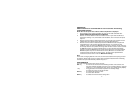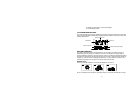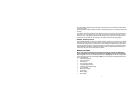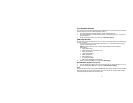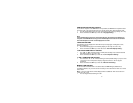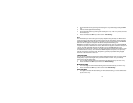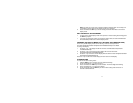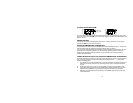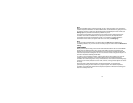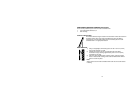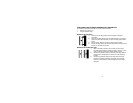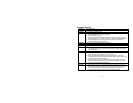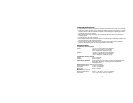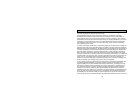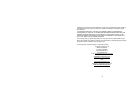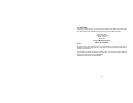13
Note:
When the 433 MHz signal is received correctly, do not re-open the battery cover of either the
outdoor temperature transmitter or radio-controlled clock, as the batteries may spring free from
the contacts and force a false reset. Should this happen accidentally then reset all units (see
Setting-up above) otherwise transmission problems may occur.
The maximum transmission range is 330 feet (100 meters) from the outdoor temperature
transmitter to the radio-controlled clock (in open space). However, this depends on the
surrounding environment and interference levels. If no reception is possible despite the
observation of these factors, all system units have to be reset (see Setting-up).
Note:
In case the radio-controlled clock is not able to detect the WWVB-signal (disturbances,
transmitting distance, etc.), the time can be manually set (please refer to notes on Manual time
setting)
.
POSITIONING
Before permanently mounting ensure that the radio-controlled clock is able to receive WWVB
signals from the desired location. Also, extreme and sudden changes in temperature will
decrease the accuracy of the radio-controlled clock, and changes in elevation will result with
inaccurate temperatures readings for the next 12 to 24 hours. These changes will require a 12
to 24 hour wait before obtaining reliable data.
To achieve a true temperature reading, avoid mounting where direct sunlight can reach the
outdoor temperature transmitter. It is recommended to mount the outdoor temperature
transmitter on a North-facing wall or in any well shaded area. The maximum transmitting range
is 330 feet (100 meters) obstacles such as walls, concrete, and large metal objects can reduce
the range.
Place both units in their desired location, and wait approximately 10 minutes before
permanently mounting to ensure that there is proper reception. The outdoor temperature
transmitter is not waterproof and should not be placed anywhere it will become submerged in
water or be directly in the rain.



